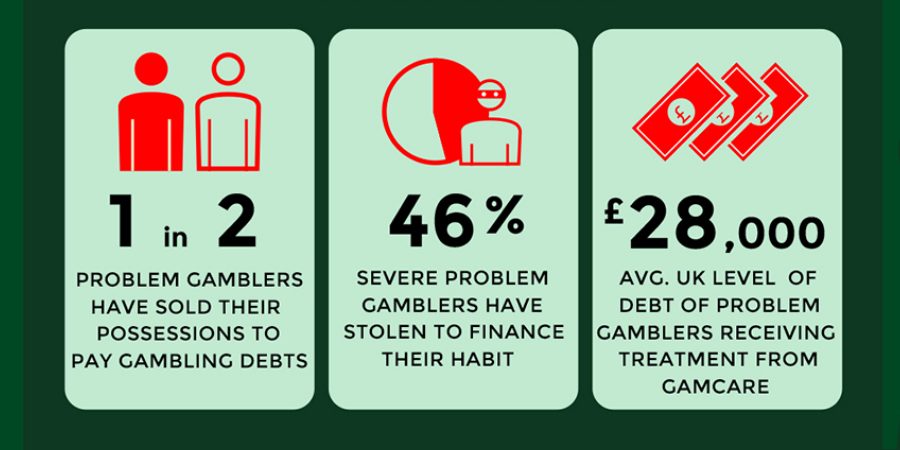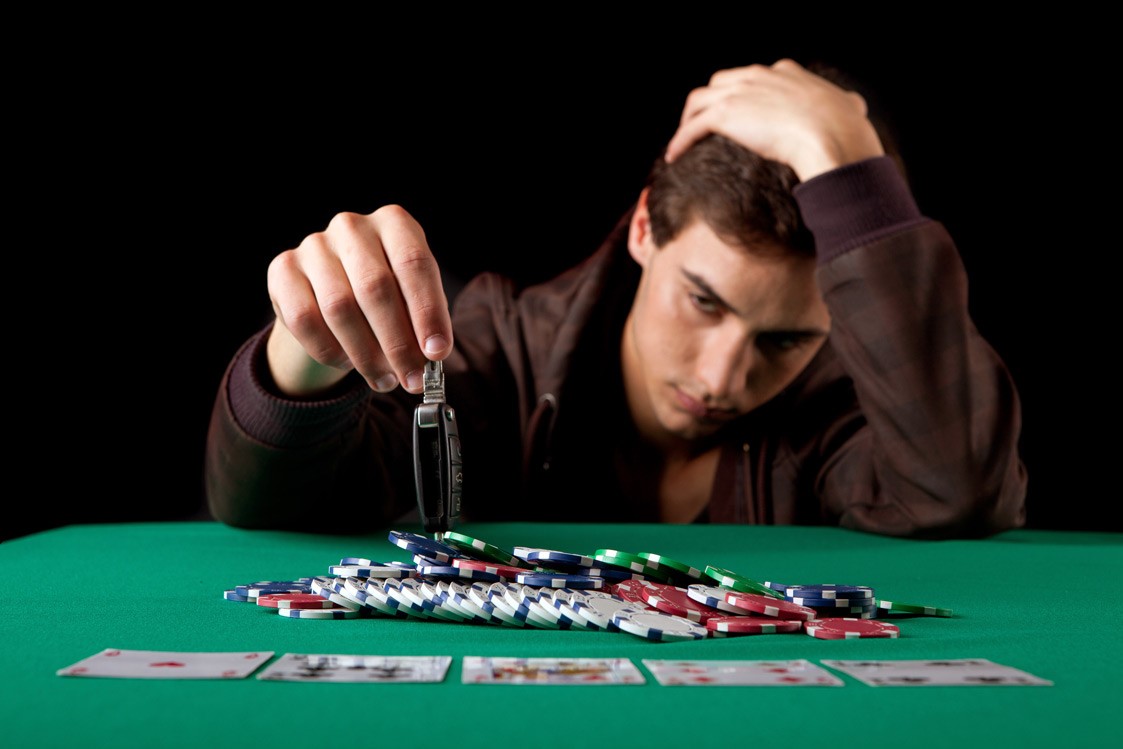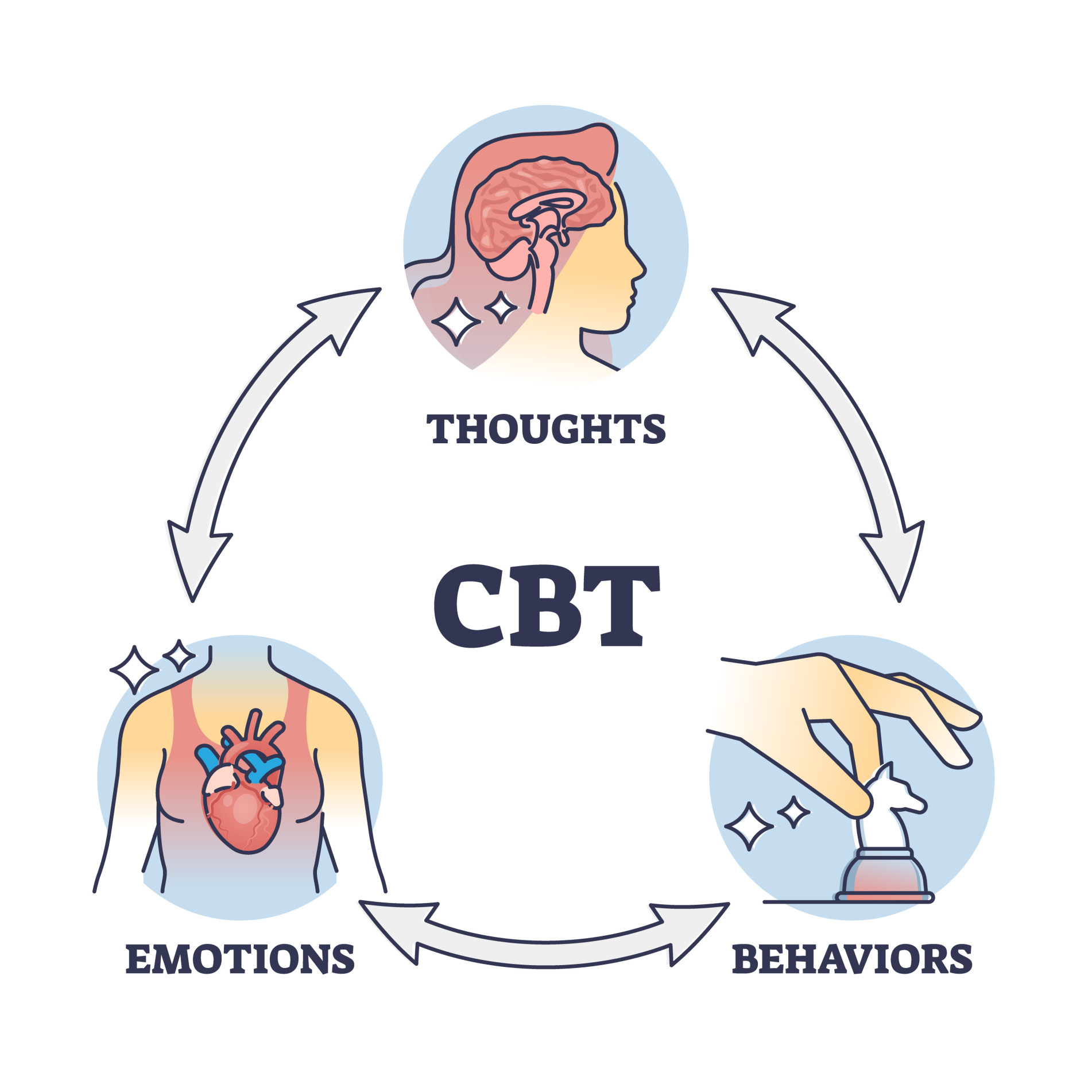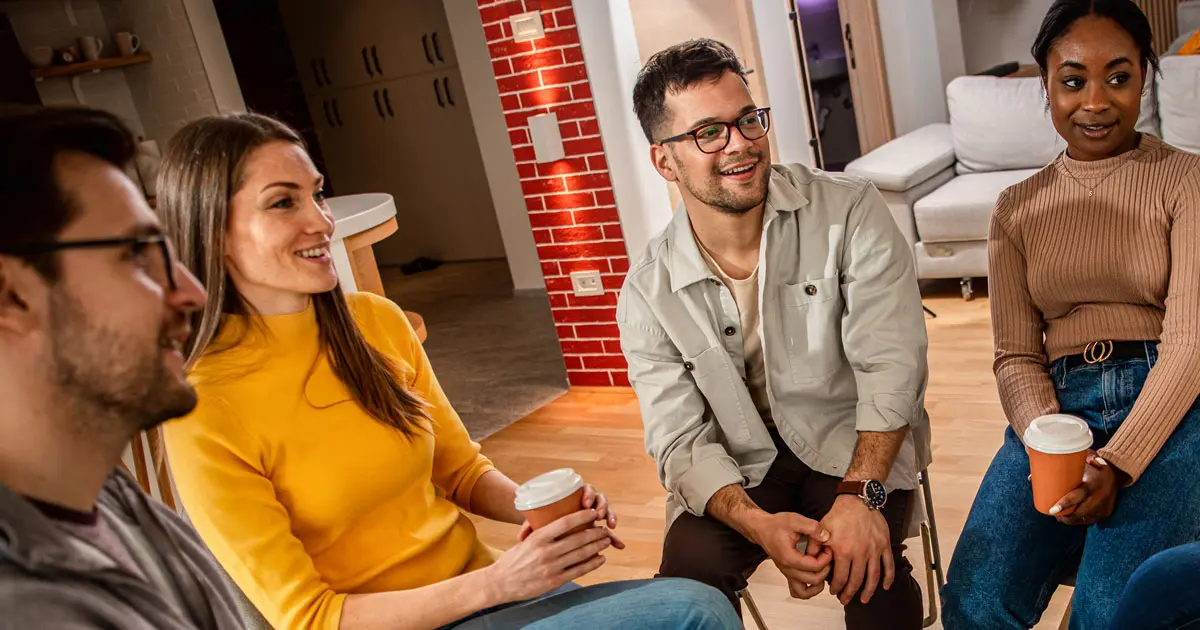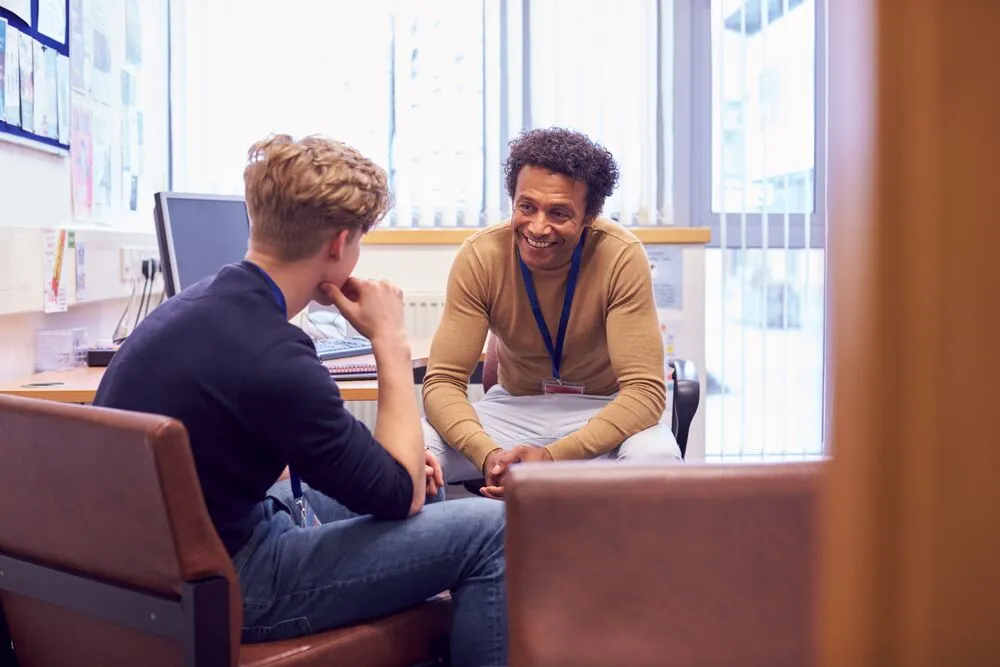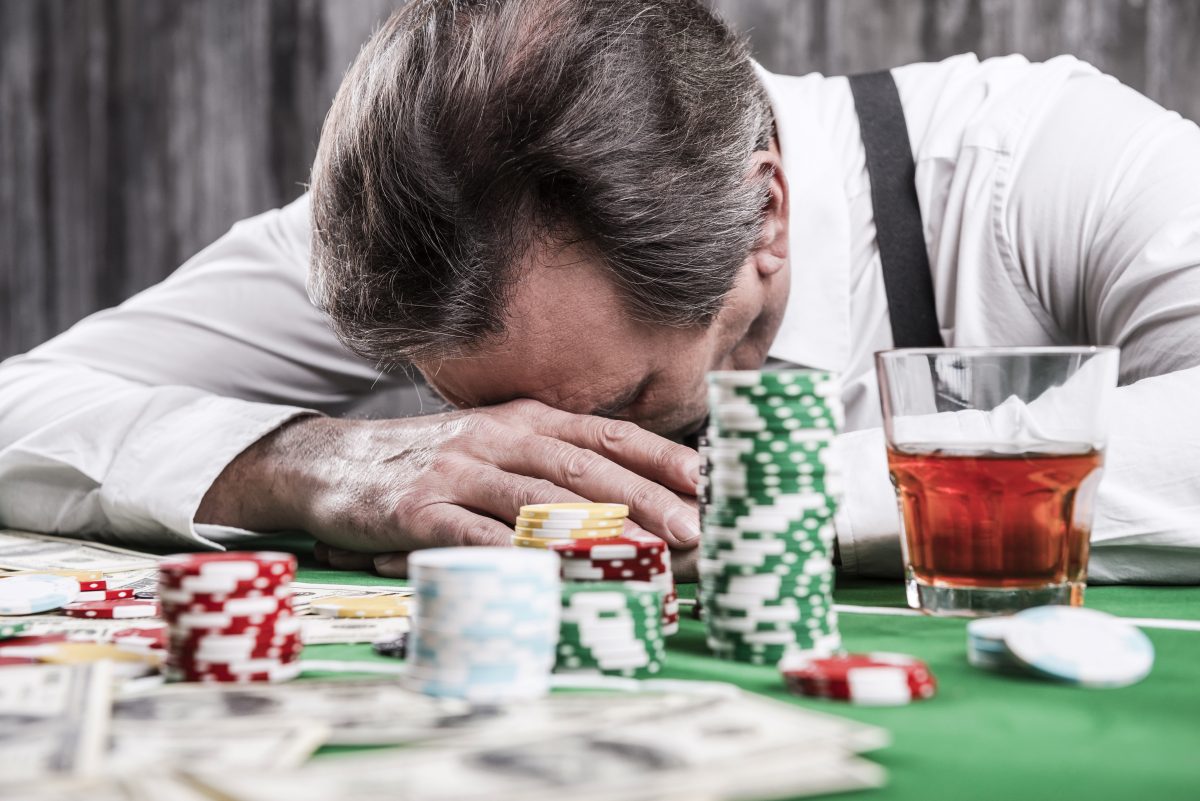

Gambling addiction is a serious and widespread issue that affects millions of people worldwide. For individuals caught in the cycle of compulsive gambling, finding the right support can make a significant difference in their lives. In this article, we will explore the various avenues of gambling addiction supportavailable to help those in need, providing hope and guidance on the path to recovery.
Understanding Gambling Addiction - More Than Just A Compulsion
Gambling addiction is a pervasive issue that affects millions of individuals in the United States and around the world. It goes beyond a mere compulsion, evolving into a complex behavioral addiction that disrupts lives, relationships, and overall well-being. Characterized by the uncontrollable urge to gamble despite adverse consequences, gambling addiction shares striking similarities with substance abuse disorders, such as alcoholism and drug addiction.
The Alarming Statistics
Recent estimates suggest that approximately two million people in the US are struggling with gambling addiction, with an additional 20 million individuals experiencing significant disruptions in their work and social lives due to gambling habits. These staggering numbers underscore the urgency of addressing the problem and providing adequate support for those affected.
The Neurological Underpinnings
Gambling addiction is not just a matter of poor choices; it involves complex neurological processes. When an individual gambles, the brain's reward system is activated, releasing neurotransmitters like dopamine, which create feelings of pleasure and reinforcement. This stimulation is similar to the effects of drugs and alcohol, making gambling highly addictive. The continuous pursuit of this pleasure reinforces the addictive cycle, making it challenging for individuals to break free from the habit.
Factors Contributing To Gambling Addiction
Several factors contribute to the development of gambling addiction, making it a multifaceted problem. Financial desperation is a common catalyst, driving individuals to seek quick and significant gains through gambling. The adrenaline rush, or the "high," experienced during betting, can be intoxicating, leading to compulsive gambling behavior. Additionally, the alluring and stimulating atmosphere of casinos and betting venues further fuels the addiction, creating an environment that encourages continuous participation.
Recognizing Gambling Addiction As An Impulse Control Disorder
In the past, the psychiatric community classified gambling addiction as a compulsion rather than a true addiction, suggesting that it was driven by intense urges rather than physical dependence. However, in-depth studies have revealed that gambling addiction shares striking similarities with substance addiction. Individuals with gambling addiction exhibit compulsive behaviors, loss of control over their gambling activities, and withdrawal symptoms when attempting to cut back or quit.
Helplines And Hotlines - A Lifeline For Those In Need
Immediate Assistance At Your Fingertips
In the battle against gambling addiction, helplines and hotlines stand as the first and most crucial lines of defense. These specialized services are meticulously crafted to offer immediate assistance to individuals grappling with the overwhelming burden of gambling addiction. Staffed by empathetic and highly trained professionals, these helplines provide a beacon of hope and support, ensuring that help is just a phone call away.
Confidential Support And Understanding
One of the fundamental aspects of helplines and hotlines is the provision of confidential support. Individuals struggling with gambling addiction often face feelings of shame, guilt, and isolation. Helplines serve as a safe space where callers can express their concerns openly without the fear of judgment. The compassionate professionals manning these helplines listen with empathy, offering understanding and reassurance to callers, thereby alleviating the emotional burden that addiction carries.
Guidance, Information, And Resources
Helplines are not just a listening ear; they are also a wellspring of information and guidance. Trained experts on the other end of the line provide valuable insights into gambling addiction, its triggers, and the available treatment options. Callers can receive personalized advice tailored to their specific situations, empowering them with the knowledge necessary to make informed decisions about their recovery journey. Additionally, helpline operators can direct callers to a plethora of resources, including therapy centers, support groups, and counseling services, ensuring that individuals have access to the most suitable assistance for their needs.
Empowering Individuals To Seek Help
For many individuals trapped in the cycle of gambling addiction, reaching out for help can be a daunting task. Helplines and hotlines serve as a catalyst for change, encouraging individuals to take that vital first step toward recovery. By providing a non-judgmental space where callers can discuss their concerns openly, helplines instill a sense of hope and confidence. This newfound empowerment enables individuals to acknowledge their addiction, confront their challenges, and actively seek the help they need to overcome the grips of gambling addiction.
24/7 Availability And Lifelong Support
The battle against gambling addiction knows no time constraints. Urgent situations can arise at any hour, emphasizing the importance of round-the-clock availability of helplines. These services operate 24/7, ensuring that individuals in crisis can reach out for support and guidance whenever they need it. Furthermore, helplines provide ongoing support, serving as a reliable lifeline throughout an individual's recovery journey. Regular check-ins, counseling sessions, and access to additional resources are offered to provide continuous assistance and encouragement, reinforcing the commitment to long-term recovery.
Treatment For Gambling Addiction - A Comprehensive Approach To Healing
In the battle against gambling addiction, the arsenal of therapeutic interventions has proven to be diverse, nuanced, and highly effective. Therapists and researchers, recognizing the multifaceted nature of this behavioral addiction, have pioneered innovative approaches that combine pharmacological and psychosocial treatments. Through a holistic framework, individuals struggling with gambling addiction can embark on a transformative journey toward recovery.
Cognitive Behavioral Therapy - Transforming Habits And Healing Minds
Cognitive Behavioral Therapy (CBT) stands at the forefront of effective treatments for gambling addiction. This evidence-based therapeutic approach has demonstrated remarkable success in addressing the root causes of addictive behaviors. In the realm of gambling addiction, CBT serves as a guiding light, teaching individuals essential relapse prevention skills and empowering them to modify detrimental habits. Through a process of self-discovery, individuals gain insights into the triggers and patterns that fuel their gambling tendencies.
Relapse Prevention Skills
CBT equips individuals with invaluable tools for relapse prevention. By identifying high-risk situations and developing coping strategies, individuals learn to navigate challenges without succumbing to the temptation of gambling. These skills empower individuals to face triggers with resilience, effectively mitigating the risk of relapse and reinforcing their commitment to sobriety.
Habit Modification
One of the core tenets of CBT is habit modification. Therapists work collaboratively with individuals to identify and challenge the thought patterns and behaviors associated with gambling. By reshaping these neural pathways, individuals can break free from the cycle of addiction, fostering new, healthy habits that promote well-being and self-control.
Uncovering Underlying Causes
CBT delves deep into the psyche, aiming to uncover the underlying causes of gambling addiction. Therapists assist individuals in exploring unresolved traumas, emotional triggers, and distorted beliefs that contribute to their addictive behavior. By addressing these root wounds, CBT facilitates profound healing, allowing individuals to confront their past and embrace a future free from the shackles of addiction.
Pharmacological Interventions
In conjunction with psychosocial treatments, pharmacological interventions have emerged as valuable tools in the treatment of gambling addiction. Medications that target specific neurotransmitter systems in the brain can help restore the balance of brain chemistry disrupted by addiction. These medications not only alleviate cravings but also address co-occurring mental health disorders, enhancing the overall effectiveness of treatment programs.
Craving Reduction
Pharmacological treatments, such as opioid antagonists, have shown promise in reducing cravings associated with gambling addiction. By blocking the rewarding effects of gambling-related stimuli, these medications empower individuals to regain control over their impulses, enabling them to resist the urge to gamble.
Addressing Co-Occurring Disorders
Many individuals struggling with gambling addiction also face co-occurring mental health disorders, such as depression or anxiety. Pharmacological interventions tailored to these specific conditions can significantly improve the overall treatment outcomes. By addressing both addiction and mental health concerns simultaneously, individuals experience holistic healing, paving the way for enduring recovery.
Supportive Counseling And Therapy - A Compassionate Path To Recovery
In the intricate journey of overcoming gambling addiction, supportive counseling and therapy stand as beacons of hope and healing. These therapeutic interventions, guided by compassionate and skilled therapists, provide individuals with the essential tools to navigate the challenging terrain of addiction. Through individual and group counseling sessions, individuals find solace in a safe, non-judgmental space where they can confront their struggles, unravel the complexities of their addiction, and pave the way towards a brighter, addiction-free future.
Creating A Safe Haven
Individual and group counseling sessions serve as sanctuaries for individuals battling gambling addiction. In the capable hands of therapists and counselors specializing in addiction behavior, these sessions offer a secure environment where individuals can voice their fears, frustrations, and hopes without fear of condemnation. Within this cocoon of trust, individuals find the courage to face the depths of their addiction, unearthing the underlying causes that drive their compulsive gambling habits.
Exploring The Underlying Causes
At the heart of supportive counseling and therapy lies the profound exploration of the underlying causes of gambling addiction. Experienced therapists guide individuals on a journey of self-discovery, helping them delve into unresolved traumas, emotional wounds, and distorted beliefs that fuel their addictive behavior. By addressing these root issues, therapy becomes a transformative process, enabling individuals to confront the pain of their past and heal the wounds that have long plagued their present.
Developing Coping Strategies
The therapeutic process equips individuals with a repertoire of coping strategies, tailored to their unique challenges. Coping mechanisms are pivotal in helping individuals manage the triggers and cravings that often lead to gambling relapses. Therapists collaborate with individuals to develop healthy, effective strategies, empowering them to face life's stressors without resorting to destructive gambling habits. These strategies foster resilience, providing individuals with the tools to navigate difficult situations and emerge stronger, without succumbing to the lure of gambling.
Boosting Self-Esteem And Emotional Well-Being
Gambling addiction can erode an individual's self-esteem, leaving them feeling defeated and powerless. Supportive counseling and therapy are instrumental in rebuilding self-worth and emotional well-being. Through positive reinforcement and personalized interventions, therapists assist individuals in rediscovering their inherent value and strengths. As individuals recognize their worth beyond the confines of addiction, their self-esteem blossoms, laying the foundation for enduring self-confidence and emotional resilience.
Fostering Lasting Change And Recovery
Supportive counseling and therapy are not merely tools for managing addiction symptoms; they are catalysts for profound, lasting change. Therapists and counselors work collaboratively with individuals, guiding them towards self-empowerment, self-acceptance, and sustainable recovery. The therapeutic journey becomes a process of transformation, allowing individuals to shed the shackles of addiction and embrace a future defined by newfound freedom, emotional stability, and personal fulfillment.
Self-Help Groups - The Power Of Shared Recovery
In the challenging journey of overcoming gambling addiction, self-help groups emerge as invaluable sanctuaries of support, understanding, and collective healing. Among the prominent self-help groups, Gamblers Anonymous (GA) shines brightly, offering a transformative 12-step programthat has guided countless individuals towards recovery. These groups serve as lifelines for those seeking solace, connection, and a sense of belonging in their battle against addiction.
Building A Supportive Community
Self-help groups, like Gamblers Anonymous, provide a nurturing environment where individuals in recovery can gather to share their experiences, fears, and triumphs. Within these gatherings, personal stories are exchanged, creating an atmosphere of empathy and camaraderie. Individuals, often isolated by their addiction, find solace in the company of others who understand their struggles intimately. This shared understanding fosters a sense of community, reminding members that they are not alone in their journey.
The Transformative Power Of 12-Step Programs
At the core of self-help groups like Gamblers Anonymous lies the influential 12-step program. Modeled after the principles of Alcoholics Anonymous, this program emphasizes personal accountability, self-reflection, and mutual support. Members are encouraged to acknowledge their powerlessness over gambling, confront their past mistakes, make amends, and embrace spiritual growth. The steps offer a structured pathway towards recovery, providing individuals with a clear framework to navigate the complexities of addiction and rebuild their lives.
A Sense Of Belonging And Understanding
Attending GA meetings provides participants with a profound sense of belonging and understanding. In these gatherings, individuals encounter peers who have faced similar challenges, conquered cravings, and emerged stronger. The shared experiences and wisdom of fellow members create an environment of acceptance and validation. This supportive atmosphere becomes a catalyst for healing, empowering individuals to confront their addiction with newfound determination and hope.
The Role Of Churches And Religious Groups
In the pursuit of holistic recovery, self-help groups often thrive in partnership with compassionate organizations and communities. Fellowship Baptist Church in Waco exemplifies this spirit of support, extending a helping hand to those in need. By embracing the ethos of fellowship and community, the church becomes a natural ally for individuals seeking solace and understanding in their battle against gambling addiction.
Residential Treatment Programs
For individuals with severe gambling addiction, residential treatment programs offer intensive, immersive support in a controlled environment. These programs provide a structured routine, individual and group therapy sessions, as well as educational workshops. Participants receive comprehensive treatment, addressing not only the addiction itself but also the underlying issues contributing to their gambling behavior. Residential treatment centers offer a focused, supportive environment conducive to healing and self-discovery.
Online Resources And Apps
In our digital age, online resources and mobile apps have become valuable tools in the fight against gambling addiction. Numerous websites and applications provide informational articles, self-assessment quizzes, and interactive tools to help individuals understand their gambling habits better. Additionally, there are apps designed to track gambling activities, set limits, and provide instant access to helplines and support networks. These resources offer convenience and privacy, making them accessible to individuals seeking help discreetly.
Gambling Addiction Support - FAQs
Why Is Gambling So Addictive?
Gambling can be highly addictive due to its impact on the brain's reward system. When a person gambles, the brain releases neurotransmitters like dopamine, creating feelings of pleasure and reinforcing the behavior. Over time, individuals may develop a tolerance, needing to gamble more to experience the same pleasure. Additionally, the unpredictable nature of gambling outcomes, coupled with the possibility of winning big, creates an adrenaline rush, making the activity all the more enticing. The combination of these factors can lead to the development of compulsive gambling behavior.
Why Can't Gamblers Stop?
Gamblers often find it challenging to stop due to various psychological and physiological factors. The continuous release of dopamine during gambling creates a powerful craving for the pleasurable sensations associated with the activity. Additionally, the fear of losing, coupled with the belief in an eventual win ("chasing losses"), can drive individuals to keep gambling in an attempt to recoup their losses. Moreover, gambling addiction can lead to changes in the brain's structure and function, making it difficult for individuals to control their impulses and stop the behavior without external support and interventions.
What Can I Replace Gambling With?
Replacing gambling with healthier activities is crucial in overcoming addiction. Here are some alternatives to consider:
- 1. Seek Supportive Communities:Engage in self-help groups like Gamblers Anonymous, where you can share experiences and find support from others facing similar challenges.
- 2. Pursue Hobbies and Interests:Rediscover hobbies or activities you used to enjoy before gambling took over your life. Engaging in creative, physical, or social activities can provide a sense of fulfillment and purpose.
- 3. Practice Mindfulness and Relaxation:Explore mindfulness meditation, yoga, or deep breathing exercises. These practices can help manage stress, anxiety, and cravings, promoting emotional well-being.
- 4. Build Supportive Relationships:Strengthen your connections with friends and family who understand your struggle and offer encouragement. Open communication can alleviate feelings of isolation and provide emotional support.
- 5. Focus on Physical Health:Regular exercise, proper nutrition, and adequate sleep contribute to overall well-being. Engaging in physical activities can boost mood, reduce stress, and enhance self-esteem.
- 6. Consider Professional Help:Therapy or counseling from mental health professionals with expertise in addiction can provide tailored strategies to cope with cravings, address underlying issues, and develop healthier coping mechanisms.
Conclusion
In the labyrinth of gambling addiction, where despair often overshadows hope, support emerges as a beacon, guiding individuals towards a future unburdened by the chains of compulsive gambling. The landscape of gambling addiction support is vast and diverse, offering a multitude of pathways to recovery.
From the comforting voices on helplines to the camaraderie found in self-help groups, from the insightful guidance of therapists to the immersive healing of residential programs, there exists an array of resources tailored to meet the distinct needs of every individual battling this formidable adversary.
In the tapestry of life, where threads of despair are interwoven with strands of hope, gambling addiction support stands as a beacon illuminating the path to recovery. It is a testament to the indomitable human spirit and the power of collective empathy. For those in need, remember that help is always available, and seeking it is not a sign of weakness but a courageous act of self-love. By embracing the support that surrounds them, individuals can embark on a transformative journey, paving the way for a brighter, addiction-free tomorrow.
